Hello folks, If you have been doing software development for some time or just looking to learn to code, then you might be thinking about what makes a good programmer? What should a programmer learn in 2025 to become a better developer? What computer science graduates can do to prepare for a career in software development and programming? What are the things expected of a junior developer are some of the common questions I receive from many students on Facebook and Emails who follow me. These are mostly college students who now have access to a wealth of information thanks to the internet and are eager to learn things in advance to prepare for their programming job interviews.
In this article, I'll share 13 things, which I believe, every programmer should know or learn in 2025. This includes a programming language like C++ or Java, essential Computer Science concepts like Data Structures, Algorithms, and Computer Network basics,.
Crucial tools like Git, Docker, Kubernetes and containers in general, Cloud computing concepts and platforms like AWS, GCP, Microsoft Azure, and evergreen Microsoft Word and Excel, skills like SQL and UNIX, editors like Eclipse or Visual Studio, text editors, like sublime and NotePad++, etc.
This list is by no means complete, but it provides you a good starting point for things a programmer should know. If you are aiming for a career in software development and looking for a programming job, then these are things you can learn and improve to stay ahead of your competition.
With the help of Docker, you can quickly deploy your application with all of its dependency in one shot, it also provides you process isolation. Similarly, Kubernetes, which is a container orchestration tool, takes it to the next level and can manage containers for you.
This means you no need to worry about the Scalability of your application, and Kubernetes or K8s can do that for you automatically. If you want to learn a new skill in 2025, I suggest you learn Docker and Kubernetes, it will not only help in your current job but also in the next post as they are also the most sought-after skill by companies of all sizes.
And, if you have already realized the importance of containers and looking for a resource to learn Docker and Kubernetes, I suggest you join Stephen Grider's best-selling course - Docker and Kubernetes: The Complete Guide, one of the best courses to learn these two essential skills.
They are also essential for all the sunrise development in the field of Data Science, Machine Learning, and Artificial intelligence because the only cloud can provide the computing power needed by those resource-hungry models.
Learning Cloud platforms like Amazon Web Service (AWS), Google Cloud Platform (GCP), or Microsoft Azure will take you one step ahead of your competitors not only in your current job but also in the next post. You don't need to learn all of them, and in fact, learning one means you will have a fair idea about others.
To start with, I suggest you learn AWS as it is the most popular and most mature cloud platform and there is a strong demand for developers and system admins with AWS knowledge if you need a resource then I recommend the [NEW] Ultimate AWS Certified Cloud Practitioner - 2025 course by Stephane Maarek, an AWS hero and one of my favorite cloud instructor on Udemy It will not only help you learn AWS in-depth but also prepare you for AWS certification.
That's why every programmer should put a serious effort into learning the Data structure and Algorithm during their computer science course.
If you are a self-taught programmer, then also you must know Data structure and algorithms; in fact, many programming bootcamp will teach you Data structure and algorithms as the first thing.
If you want to learn it from yourself, then Data Structures and Algorithms: Deep Dive Using Java is the right place to start with.
Thankfully Git and Github have streamlined the market, and now more than 70% of organization uses Git; hence you can get away by just learning Git.
Btw, you should put some effort into learning Git well, like you should be comfortable with advanced version control concepts like branching and merging as well as the tool itself, as both on the command line and using GUI. For beginners, The GitHub Ultimate: Master Git and GitHub is the right place to start with.
For Java Programmers, there are three primary IDE to choose from, like Eclipse, NetBeans, and IntelliJ, while Eclipse is my favorite, IntelliJ IDEA is not bad at all.
If you happen to be an IntelliJ IDEA fan, then I suggest you go through these IntelliJIDEA best courses to learn your IDE better.
There are many databases, like Oracle, MySQL, SQL Server, PostgreSQL, etc. but knowing just one is enough. The critical point is that you should be familiar with the database. You should know how to insert/update/delete data and write SQL queries to retrieve it.
Knowledge of advanced concepts like join an aggregate function is a big bonus, and if you want to get that, then The Complete SQL BootCamp is a great place to start with.
It allows you to work effectively. You can search files, know what's going on with the system by checking its CPU and memory usage, and perform basic and advanced tasks. If you want to learn Linux commands, I suggest going through Learn Linux in 5 Days and Level Up Your Career course on Udemy.
I have mostly used NotePad on Windows and VI in Linux, but nowadays, you have a lot of choices available in terms of advanced editors like Sublime and NotePad++, which provides IDE like functionalities.
I suggest you to spend some time learning your favorite Editor and keyboard shortcuts, productivity tips are something you can learn. If you like Sublime, then Sublime Text for Rapid Web Development is an excellent course to learn such things.
I have used Excel to track progress, reconcile data, data analysis, data quality checks, and project planning.
It has several usages, and that's why I urge every programmer to learn Excel in depth. Instead of just copy-pasting data, You should know essential functions, like searching, sorting, filtering, and VLOOKUP to compare stuff.
If you want to learn Excel from scratch or want to improve your knowledge you can check out these best Excel online courses to start with.
It's straightforward to start with, and that's why the right choice for beginners. It's also immensely powerful and allows you to do virtually anything.
It has got libraries from doing basic stuff, e.g. web development to Big Data and so on. If you decide to learn Java, then The Complete Java MasterClass is probably the best place to start with.
Most of the applications you will write will also not be standalone, but the client-server kind of use where the request will go through the network to a server. Clients will access your application from anywhere in the world.
The bottom line is that you must understand the networking basics to understand, develop, and support your application. If you want to learn more, then I suggest you join The Complete Networking Fundamentals course on Udemy. A good starting point for beginners.
Well, there is undoubtedly some language which is suitable for both OOP coding and scripting like Python, and that's why I asked you to learn it at least, but if you happen to learn C/C++ or Java, then you can't whip out something as quickly as a Python or Perl developer can do.
If you want to learn Python and need a course, The Complete Python Bootcamp is a great course to start with.
The scripting language makes it easy to create tools and scripts to solve common problems in the programming world. If you have a good command over a scripting language, e.g. Python, then you can automate mundane stuff easily.
Once again, I suggest you to learn Python to kill two birds in one stone, and if you need some more resources, this list of free Python courses is also beneficial.
In this article, I'll share 13 things, which I believe, every programmer should know or learn in 2025. This includes a programming language like C++ or Java, essential Computer Science concepts like Data Structures, Algorithms, and Computer Network basics,.
Crucial tools like Git, Docker, Kubernetes and containers in general, Cloud computing concepts and platforms like AWS, GCP, Microsoft Azure, and evergreen Microsoft Word and Excel, skills like SQL and UNIX, editors like Eclipse or Visual Studio, text editors, like sublime and NotePad++, etc.
This list is by no means complete, but it provides you a good starting point for things a programmer should know. If you are aiming for a career in software development and looking for a programming job, then these are things you can learn and improve to stay ahead of your competition.
13 Essential skills Every Programmers and Developer should learn in 2025
Without further ado, here is a list of things that I personally believe, every programmer should know, irrespective of the job he is doing. These are essential skills and will serve you for a long time. Any investment made into this in terms of time, money, and effort will help you to reap the rewards throughout your career.1. Containers (Docker and Kubernetes)
In 2025, I believe every programmer, software engineer, data scientist, and even project manager should know about containers and tools like Docker and Kubernetes. It's proven now that boxes not only help developers to test their application in a unified environment but also they simplify the deployment process.With the help of Docker, you can quickly deploy your application with all of its dependency in one shot, it also provides you process isolation. Similarly, Kubernetes, which is a container orchestration tool, takes it to the next level and can manage containers for you.
This means you no need to worry about the Scalability of your application, and Kubernetes or K8s can do that for you automatically. If you want to learn a new skill in 2025, I suggest you learn Docker and Kubernetes, it will not only help in your current job but also in the next post as they are also the most sought-after skill by companies of all sizes.
And, if you have already realized the importance of containers and looking for a resource to learn Docker and Kubernetes, I suggest you join Stephen Grider's best-selling course - Docker and Kubernetes: The Complete Guide, one of the best courses to learn these two essential skills.
2. Cloud Computing and Platforms (AWS, Azure, GCP)
Apart from containers, Cloud is another thing that I think every Software developer and Data Scientist should learn in 2025. Companies of all sizes and domains are now shifting their environments into Cloud for cost-saving and better scalability, which means sooner or later, you need to work with cloud-native applications.They are also essential for all the sunrise development in the field of Data Science, Machine Learning, and Artificial intelligence because the only cloud can provide the computing power needed by those resource-hungry models.
Learning Cloud platforms like Amazon Web Service (AWS), Google Cloud Platform (GCP), or Microsoft Azure will take you one step ahead of your competitors not only in your current job but also in the next post. You don't need to learn all of them, and in fact, learning one means you will have a fair idea about others.
To start with, I suggest you learn AWS as it is the most popular and most mature cloud platform and there is a strong demand for developers and system admins with AWS knowledge if you need a resource then I recommend the [NEW] Ultimate AWS Certified Cloud Practitioner - 2025 course by Stephane Maarek, an AWS hero and one of my favorite cloud instructor on Udemy It will not only help you learn AWS in-depth but also prepare you for AWS certification.
3. Data Structure and Algorithm
If you want to become a programmer, then you ought to know Data Structure and Algorithms well; there is no escape. This is one of the important topics of any programming job interview, and without you knowing basic data structures, like an array, linked list, map, set, it's not possible to write a real-world application.That's why every programmer should put a serious effort into learning the Data structure and Algorithm during their computer science course.
If you are a self-taught programmer, then also you must know Data structure and algorithms; in fact, many programming bootcamp will teach you Data structure and algorithms as the first thing.
If you want to learn it from yourself, then Data Structures and Algorithms: Deep Dive Using Java is the right place to start with.
4. Source control (Git)
Source control is used to store code, and if you want to become a coder or software developer, you must know version control tools like Git and SVN.Thankfully Git and Github have streamlined the market, and now more than 70% of organization uses Git; hence you can get away by just learning Git.
Btw, you should put some effort into learning Git well, like you should be comfortable with advanced version control concepts like branching and merging as well as the tool itself, as both on the command line and using GUI. For beginners, The GitHub Ultimate: Master Git and GitHub is the right place to start with.
5. IDEs (VS Code or IntelliJ IDEA)
The modern IDES like Eclipse or Visual Studio Code is the most critical tool for any programmer. For C, C++, and C# programmers, the choice is clear, the Visual Studio and for Python developers, Jupiter Notebook is getting better and better every day.For Java Programmers, there are three primary IDE to choose from, like Eclipse, NetBeans, and IntelliJ, while Eclipse is my favorite, IntelliJ IDEA is not bad at all.
If you happen to be an IntelliJ IDEA fan, then I suggest you go through these IntelliJIDEA best courses to learn your IDE better.
6. Database and SQL
SQL is a classic, it's been around for more than 30 years, and I think it will be around for another 30 years. Given the omnipresence of the database, it's expected from a programmer that he is familiar with essential database concepts like normalization and table design along with SQL.There are many databases, like Oracle, MySQL, SQL Server, PostgreSQL, etc. but knowing just one is enough. The critical point is that you should be familiar with the database. You should know how to insert/update/delete data and write SQL queries to retrieve it.
Knowledge of advanced concepts like join an aggregate function is a big bonus, and if you want to get that, then The Complete SQL BootCamp is a great place to start with.
7. UNIX or Linux
Like SQL, UNIX also has withstood the test of time. It's also been around for more than 30 years, and I hope it will there for many more coming years. Since most of the time, programmers have to work in the UNIX machine, like Linux servers, good knowledge of the Linx command line goes a long way.It allows you to work effectively. You can search files, know what's going on with the system by checking its CPU and memory usage, and perform basic and advanced tasks. If you want to learn Linux commands, I suggest going through Learn Linux in 5 Days and Level Up Your Career course on Udemy.
8. Text Editors
There is not a single day when I have not used a text editor while working as a programmer. It's one of the essential tools even for non-programmers and anyone who works with computers.I have mostly used NotePad on Windows and VI in Linux, but nowadays, you have a lot of choices available in terms of advanced editors like Sublime and NotePad++, which provides IDE like functionalities.
I suggest you to spend some time learning your favorite Editor and keyboard shortcuts, productivity tips are something you can learn. If you like Sublime, then Sublime Text for Rapid Web Development is an excellent course to learn such things.
9. Microsoft Excel
Excel is one of the king's tools for programmers, software developers, project managers, traders, and business guys. It's much more than just spreadsheet software. It provides many useful features and functions to perform sophisticated data analysis.I have used Excel to track progress, reconcile data, data analysis, data quality checks, and project planning.
It has several usages, and that's why I urge every programmer to learn Excel in depth. Instead of just copy-pasting data, You should know essential functions, like searching, sorting, filtering, and VLOOKUP to compare stuff.
If you want to learn Excel from scratch or want to improve your knowledge you can check out these best Excel online courses to start with.
10. OOP Programming languages
As a programmer, you must know a programming language like C++ or Java or maybe Python or JavaScript. You can choose whatever you want to, but my personal suggestion is that you should at least know Java.It's straightforward to start with, and that's why the right choice for beginners. It's also immensely powerful and allows you to do virtually anything.
It has got libraries from doing basic stuff, e.g. web development to Big Data and so on. If you decide to learn Java, then The Complete Java MasterClass is probably the best place to start with.
11. Networking basics
Today's world is an interconnected world, and anywhere you go, you will find computer networks, starting from home where you are using WIFI across many devices to school, college, and offices, which uses Local Area Network (LAN) to the Internet.Most of the applications you will write will also not be standalone, but the client-server kind of use where the request will go through the network to a server. Clients will access your application from anywhere in the world.
The bottom line is that you must understand the networking basics to understand, develop, and support your application. If you want to learn more, then I suggest you join The Complete Networking Fundamentals course on Udemy. A good starting point for beginners.
12. Scripting language [Python]
In point # 8, I have asked you to learn a Programming language, and here I am asking you to learn a scripting language? Why? Can the same programming language not be used as a scripting language?Well, there is undoubtedly some language which is suitable for both OOP coding and scripting like Python, and that's why I asked you to learn it at least, but if you happen to learn C/C++ or Java, then you can't whip out something as quickly as a Python or Perl developer can do.
If you want to learn Python and need a course, The Complete Python Bootcamp is a great course to start with.
The scripting language makes it easy to create tools and scripts to solve common problems in the programming world. If you have a good command over a scripting language, e.g. Python, then you can automate mundane stuff easily.
Once again, I suggest you to learn Python to kill two birds in one stone, and if you need some more resources, this list of free Python courses is also beneficial.
13. Blockchain
So far I have mentioned all the Core skills a programmer or software engineer should learn. These are the skills that are an absolute must and will serve you for a long time in your career but at the same time, you also need to learn a couple of emerging technologies like Blockchain, Artificial Intelligence, Machine Learning, Big Data and Analytics, Internet of Things, and Data Science to stay ahead of the curve.
I suggest you choose the technology which is closer to your heart. For example, if you enjoy watching Machine learning demos and how Artificial Intelligence enhances the gameplay then you can go for Artificial Intelligence.
Similarly, if you like the idea of smart contracts and have a public chain of records then Blockchain might be interesting to you. The idea here is to learn something which you love so that you can achieve greatness on those technologies and use that to solve real-world problems.
It doesn't matter which technology you choose but at least learn one in 2025. If you ask me, I would suggest going for Blockchain technology and if you need a resource, I highly recommend Enterprise Blockchain Professional Certification by 101 Blockchain. It's a great resource to become a Blockchain expert. This is a bit expensive and costs you around $399 but you can use code BCHAIN30 to get 30% OFF for a limited time.
That's all about 13 things every Programmer should know or learn. Every Computer science graduate and people who aspire to become programmers can use this list to find out about things like tools and skills to become a successful programmer and Software developer. If you have any other skills which you think are important for programmers like soft skills and any particular tools, framework, library, and practice, feel free to share your thoughts with us.
Other Programming articles you may like
- 10 Algorithm Books Every Programmer Should Read
- The 2025 Web Developer RoadMap
- 10 Tips to Improve your Programming Skill
- 11 Essential Skills for Software developer should learn
- 10 OOP Design Principles Every Programmer Should Know
- 10 Tools Every Software Engineer should know
- The 2025 Java Developer RoadMap
- 10 High Paying Career Options for Programmers and developers
- 10 Tips to become a better Java developer
- 100+ Data Structure and Algorithm Questions for Programmers
- 10 Unit testing tools for Java Programmers
- 21 Books Java Developer Should Read in 2025
- 10 Frameworks you can learn to become full-stack Java developers
- The 2025 React Developer RoadMap
- Top 10 Coursera Courses and Certification in 2025
Thanks for reading this article so far. If you find this article useful, then please share it with your friends and colleagues. If you have any questions or feedback, then please drop a note.
P. S. - If you are interested to learn more about things programmers should know, there is a lot of guidance available in terms of essential stuff for programmers, and you can find man great advice on the internet like 97 Things Programmer should know, a must-read for every serious programmer.


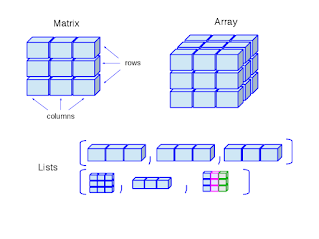
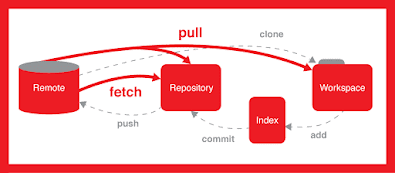




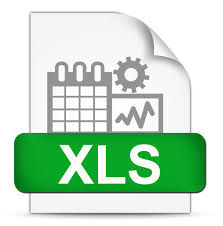


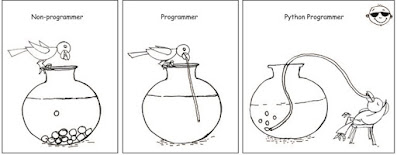
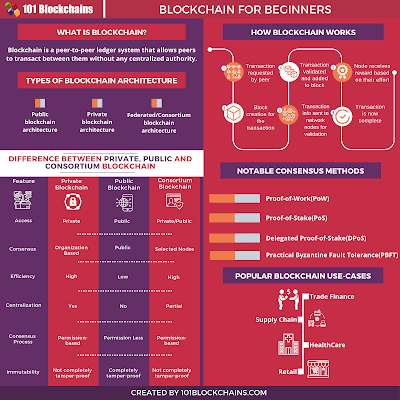
Nice!
ReplyDeleteThank you for your comprehensive articles
ReplyDeleteWould you please write an article about what differentiates a competent developer from a mediocre one?
I want to start to become a developer but seeing many posts on Quora about people not satisfied with being a developer has made me think about it
Thanks
very nice
ReplyDelete